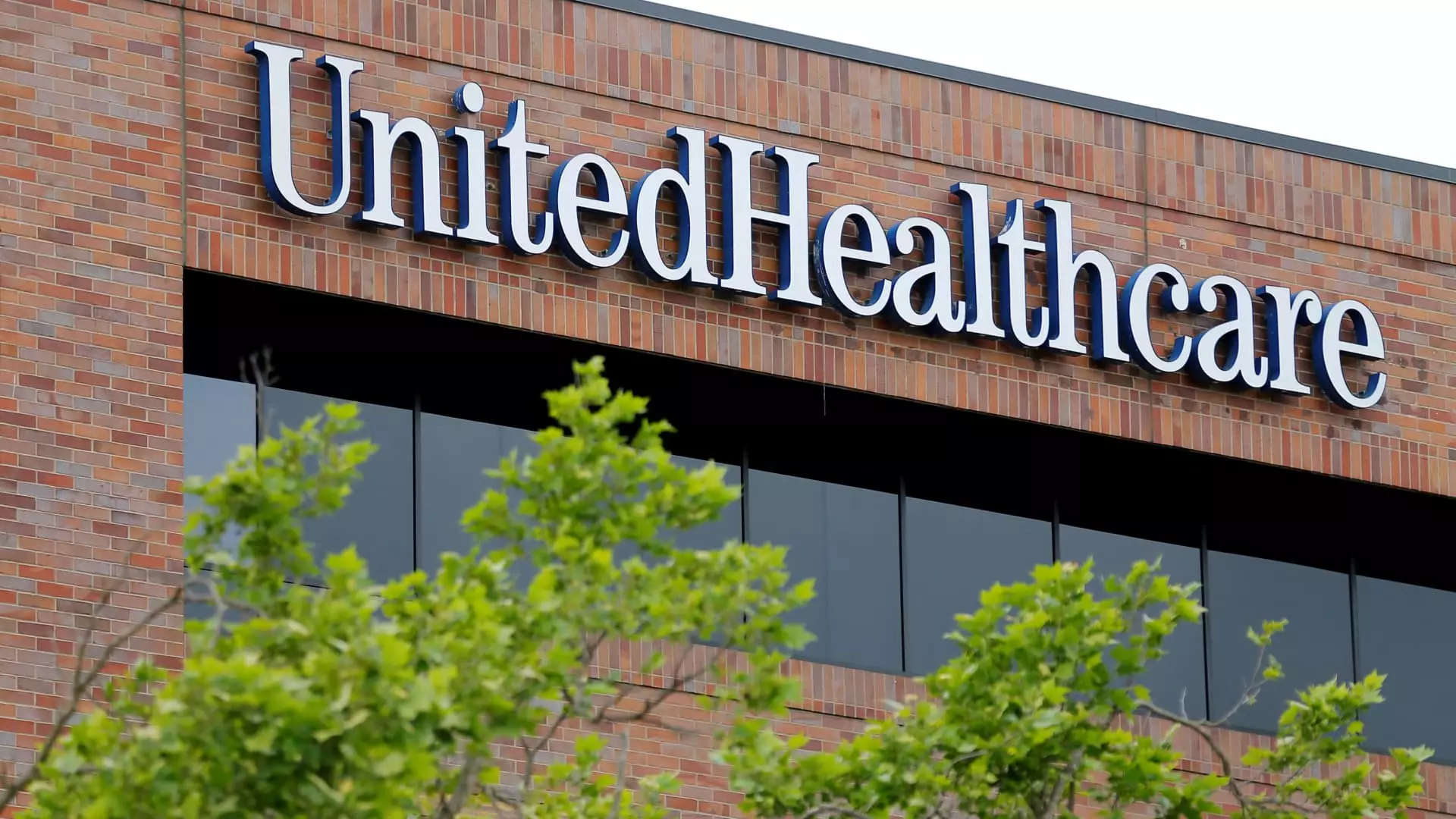In recent times, UnitedHealthcare, a powerhouse in the American health insurance landscape, is once again finding itself in a storm of scrutiny and challenges. The company’s parent entity, UnitedHealth Group, is facing multiple crises including governmental investigations, potential staff reductions, and high-profile disputes. These developments follow a particularly tumultuous year marked by internal upheaval, cyber security breaches, and rising medical costs. With more than $420 billion in market capitalization, UnitedHealth Group stands as the largest health care conglomerate in the United States, but its current trajectory raises concerns about its operations and credibility.
One of the most alarming challenges currently under discussion is a civil fraud investigation initiated by the Department of Justice (DOJ) concerning UnitedHealthcare’s Medicare billing processes. Reports indicate that the investigation centers on whether the company has been artificially inflating its Medicare Advantage payments by fabricating diagnostic data. This investigation is not only a challenge to UnitedHealthcare’s reputation but could also significantly affect its financial health should findings lead to liability or regulatory penalties.
The Medicare Advantage plans, where private insurers like UnitedHealthcare are compensated by the government to manage care for elderly patients, have come under heavy scrutiny. Many patients are drawn to these plans for the additional benefits they offer over traditional Medicare; however, allegations that UnitedHealthcare has exploited the system to maximize its profits could undermine trust in these programs. Previous reports indicating that Medicare has paid billions to UnitedHealthcare based on potentially dubious diagnoses have intensified this scrutiny.
As if the investigation was not enough, UnitedHealthcare has also stirred concern through its recent announcements regarding employee buyouts and potential layoffs. As part of a cost-cutting strategy aimed at addressing soaring expenses—exacerbated by government scrutiny and ongoing technological changes—the company is reportedly offering voluntary buyouts to its workforce. If these offers do not meet targeted resignation numbers, layoffs could become a reality. This reflects a larger trend within the healthcare sector where companies are trying to adapt to rising operational costs while leveraging technology for efficiencies.
While cost management is a crucial aspect of running a large organization, the move toward layoffs sends a chilling message to employees and raises questions about the company’s long-term strategy and employee morale. It is a particularly sensitive issue considering the backdrop of public scrutiny the company is currently enduring.
UnitedHealthcare’s battle cannot be overlooked merely as a corporate issue; it has also turned into a public spectacle, most notably with billionaire investor Bill Ackman. Recently, Ackman, who has no vested interest in UnitedHealth, took to social media to defend a Texas doctor embroiled in a conflict with the insurance giant over claims of unjust treatment of patient care requests. His involvement has amplified public dissatisfaction towards UnitedHealthcare’s practices and led to calls for systemic reform in the insurance industry.
The personal clash with a figure as influential as Ackman, who indicated that the company’s profitability might be overstated due to denials of medically necessary procedures, adds to the mounting pressure on UnitedHealthcare to reevaluate its business ethics and claims processes. As the backlash grows, the company must consider not only its financial strategies but also its broader impact on public health and well-being.
To further complicate matters, UnitedHealthcare is still reeling from a significant cyberattack experienced by its subsidiary, Change Healthcare. This attack compromised the private health information of an astonishing 190 million patients. The resultant financial fallout has already exceeded $3 billion in payouts to affected providers. The ramifications from this cyber assault linger, contributing to a sense of fragility and vulnerability surrounding the organization.
The fact that UnitedHealth became aware of the cyber issues a full year before making public disclosures raises questions about transparency and accountability. For an organization that functions in the sensitive realm of health data, such breaches can have dire consequences on consumer trust.
As UnitedHealthcare juggles multiple pressures, ranging from government investigations, employee relations, public scrutiny, and cybersecurity challenges, its future hangs in the balance. This confluence of crises serves as cautionary tales for health care organizations regarding the vital importance of ethical practices, robust cybersecurity measures, employee relations, and transparent communication. UnitedHealthcare must navigate these tumultuous waters with care, or risk being swept away in the tide of public discontent and regulatory scrutiny.
The industry’s response to these challenges will ultimately shape the landscape for not only UnitedHealthcare but for the entire healthcare insurance sector, reinforcing the need for a paradigm shift towards more responsible and effective healthcare management practices.

